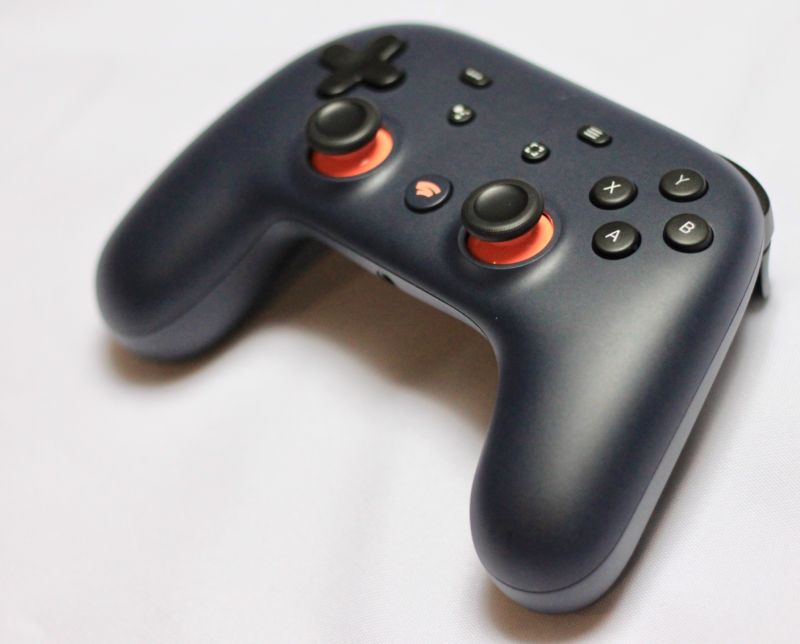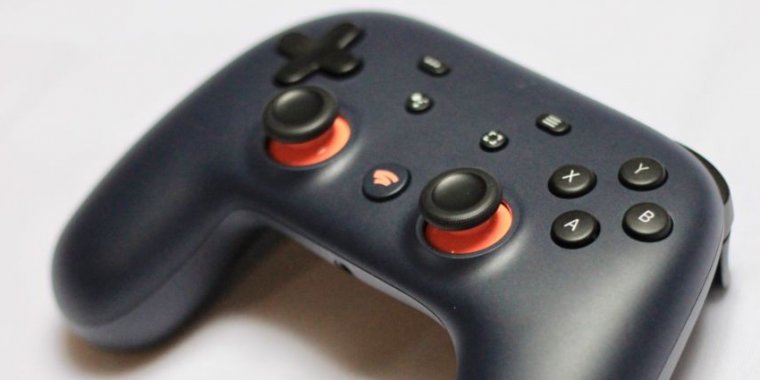
Kyle Orlando
Google’s game streaming service Stadia will die an almost inevitable death early next year. Google reimburses players for all their hardware and game purchases. But so far, Google is also leaving Stadia players behind controllers that, while once costing $70, will soon do less than $20 Bluetooth gamepad.
Stadia’s controllers are custom-built to connect directly to the Internet, reducing latency and allowing instant firmware updates and (sometimes painful) connections to smart TVs. There’s Bluetooth in the Stadia controller, but it’s only used when you’re setting up Stadia, with a TV, a computer with the Chrome browser, or a Chromecast Ultra.
The Google Store page for the Stadia Controller reads in a footnote: “Product includes Bluetooth Classic radio. No Bluetooth Classic functionality is currently enabled. Bluetooth Classic may be implemented at a later date.” (Bluetooth Classic is a more traditional version of Bluetooth than modern low-power or mesh versions.)
That potential later date can’t get much later for fans of the Stadia controller. Many cite the controller’s hand feel and claim it as their favorite. They would like to see Google unlock Bluetooth to make their favorite something more than just a USB controller and avoid a lot of plastic and circuit board waste.
“Now if you just turn on Bluetooth on the controller, we could help the environment by not turning them into electronic waste,” Roadrunner571 writes on one of the many controller-related threads on the r/Stadia subreddit. “They created garbage and they owe it to me at the very least to do their reasonable best to prevent millions of otherwise fine controllers from filling landfills,” wrote another.
Many have asked if Google itself isn’t going to push a firmware update to unlock the functionality, then it should open access to the devices itself so the community can do it for them. That’s often a tricky scenario for large companies that rely on a range of subcontractors to manufacture hardware. Some have suggested that the full refunds give Google more leeway to ignore the limited function of their devices after shutting down.
You can still connect the Stadia Controller to the USB port on your Smart TV, computer or game console and use it as a controller via a standard Human Interface Device (HID) connection. How-To Geek reports that it works well on PCs and with Android devices, but not great on Xbox or Playstation consoles. At least one Github project is reportedly improving the Windows feature of the Stadia controller (as an Xbox controller). An intrepid Stadia fan, Parth Shah, had already cobbled together a “Stadia Wireless” Python hack to make the Stadia controller work “wirelessly”: connected to a phone, then connected that phone to a Windows PC via WiFi, a standard emulation Xbox controller.
Still, Shah is also active in the Stadia subreddit and asks to make his creation obsolete: “Not having to go through all this effort would be so great. Hopefully [G]eye is doing something about it.”
There is a precedent for pushing new firmware to old business ideas. Valve, makers of the Steam PC gaming store and various hardware associated with it, enabled Bluetooth Low-Energy on Steam Controllers just before the Steam Box and Steam Link hardware ambitions died down. Valve had something else in mind for them, which is its Steam Link software on other platforms. But Valve made Steam Controllers usable for many other platforms and prevented them from ending up in, at best, e-waste sorting facilities.
E-waste of abandoned hardware is an area where Google, along with many other big tech companies, is much quieter than it is on carbon emissions, water, or even food waste. The company’s pledge to create “A circular Google” states that the company believes that by “incorporating circularity into our designs from the start, things made today can become tomorrow’s resources and reuse, repair and make recovery possible.”
In this case, it seems that circularity, in the form of a standard Bluetooth controller, is in Stadia controllers. The reuse and recovery would be highly appreciated by customers.

